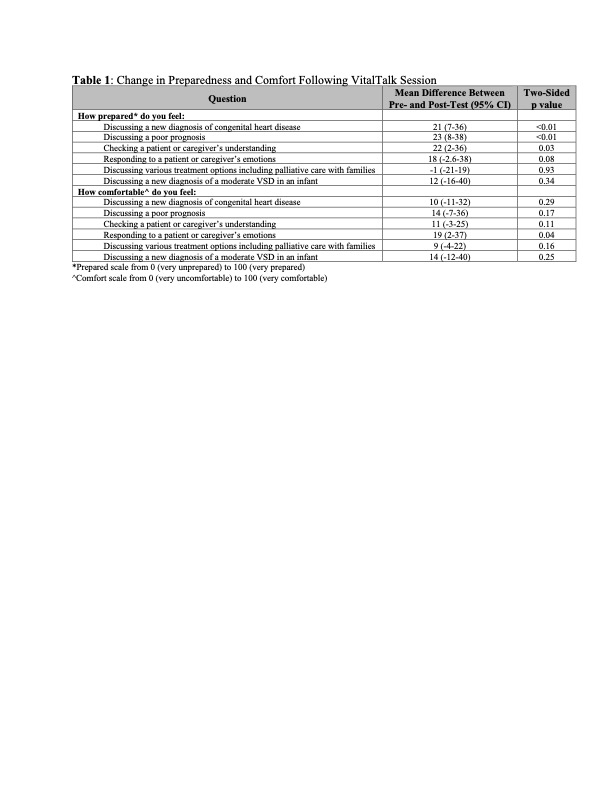Cardiology
Session: Cardiology 2
160 - Teaching pediatric cardiology fellows to communicate serious news: a pilot study
Monday, May 6, 2024
9:30 AM - 11:30 AM ET
Poster Number: 160
Publication Number: 160.2906
Publication Number: 160.2906

Christopher Teng, MD (he/him/his)
Cardiology Clinical Fellow
Boston Children's Hospital
Boston, Massachusetts, United States
Presenting Author(s)
Background: Pediatric cardiology fellows are often delivering serious news to families. Effective provider-patient communication is the basis of strong therapeutic relationships and improves health outcomes, increases patient adherence, and enhances patient satisfaction with care. Communication training has been shown to improve physicians’ communication skills, ability to deliver bad news, and meet the informational and emotional needs of patients and family members. However, there is little data on pediatric cardiology fellows competencies or training in communication skills.
Objective: To determine if a communication intervention using a standardized methodology improves pediatric cardiology fellow preparedness and comfort with communicating serious news.
Design/Methods: Pediatric cardiology fellows participated in a 3-hour communication training session. The session used VitalTalk methodology and was facilitated by two VitalTalk facilitators. Fellows spent 1 hour learning the methodology and 2 hours in role play with standardized actors. An anonymous, electronic pre- and post-survey were administered to all participants via REDCap. Participants were asked about their preparedness and comfort performing certain communication skills and leading challenging conversations specific to pediatric cardiology. Response options utilized a combination of 0 (low comfort/preparedness) to 100 (high comfort/preparedness) point scales and multiple choice.
Results: 9 fellows participated in the training. Of these, 8 were first-year fellows and 1 was a third-year fellow. Finding the right words, balancing honesty with hope, and clinical and prognostic uncertainty were the top three factors that contributed to making conversations difficult. Following the course, there was a statistically significant increase in fellow preparedness to communicate a new diagnosis of congenital heart disease with a poor prognosis and to check understanding when delivering serious news (Table 1). All fellows felt this session was important to their training as a pediatric cardiologist and would use the skills taught in clinical practice.
Conclusion(s): Communicating serious news effectively is a skill that can be learned and is especially important in the field of pediatric cardiology. Our study demonstrates that an interactive, VitalTalk course can improve preparedness to deliver serious news in a cohort of pediatric cardiology trainees. Future studies are needed to evaluate translation of skills to clinical practice and durability of these skills in larger cohorts.

